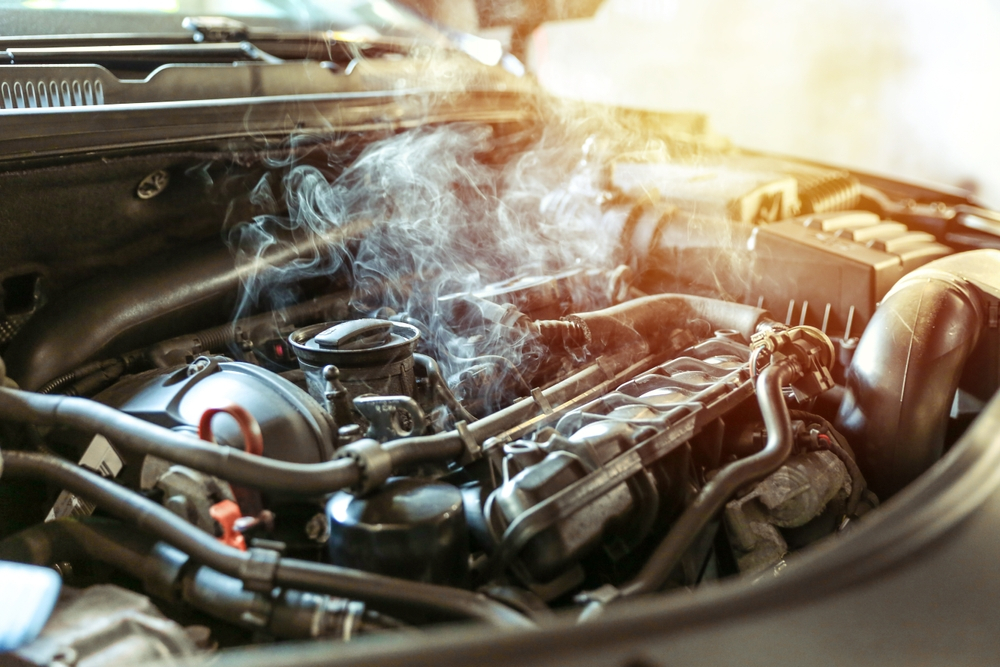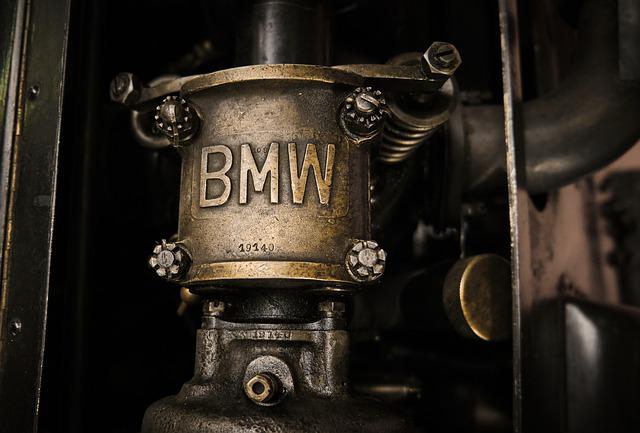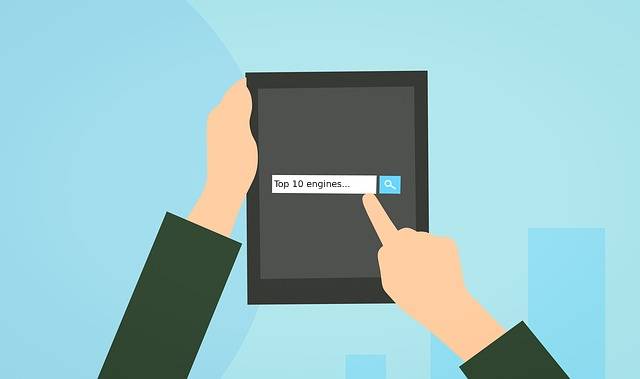8 Tips to Maintain Your Car Engine
Find Used Engines and Transmissions for a Great Price! Live Assistant For Used Engines Call 1800-518-9776

You’ve probably heard people say that maintaining the engine of your car is the single most important thing you can do for it.
The way your car works depends a lot on the way the engine functions and ignoring its requirements can lead to major problems.
A car is usually one of the most important investments in a person’s life and it’s a shame when it stops working the way it’s meant to, just because it wasn’t checked on regularly or cleaned promptly.
More often than not, people top up their engines and forget about it. Even though maintaining engine oil levels is an important part of preserving your car engine, it isn’t the complete solution to save it from spoiling.
That’s why in this blog, we’ve gathered all the necessary tips, repair costs, the pros & cons of DIY vs professional engine repairs and so much more. So, keep reading to learn more and watch your engine work for a long time!
What Are the Signs of Engine Trouble?
Slowly but steadily, when your engine is in trouble, you’ll start noticing that it isn’t working smoothly like it used to and some odd smells may also come up when driving.
Whatever the issues may be, here are some signs that your engine needs to be inspected and possibly maintained-
-
Starting & Stalling: This is a very common sign and often the very first thing you will notice when your car engine starts having problems. Your car may suddenly stall while driving, and oftentimes it may stop completely and refuse to start again.
-
Dashboard Lights Flickering: When you notice that dashboard lights are blinking or dimmer than they seem, it means that your car engine has less power. Especially if you see the check engine light come on, it’s time to inspect it immediately.
-
Weird Noises and Smells: There might be burning smells or screeching noises coming from your car. This happens because there isn’t enough fuel in the engine or the filters and exhaust systems.
-
Sluggish Performance: A car engine starts lagging and gives poor performance because there are problems such as a clogged fuel filter and other compression issues.
-
Smoke Issues: Engine issues such as overheating cause smoke to come out of the car. This happens because the engine has been overworked, the wrong fluids were chosen for the brake or transmission, functioning with a low-quality coolant, and so on.
Thus, these signs show you that it’s time to check your car engine.
8 Tips to Maintain Car Engine
The 8 tips to maintain a car engine are-
1. Topping Up & Changing Fuel
Without proper engine oil levels, the components of the engine will start grinding against each other and cause brutal damage to its insides. That’s why you need to top up the fuel to give the engine sufficient lubrication.
Besides, changing your car fuel promptly is also an important practice to follow to prevent any debris build up in the car parts and to help your engine stay away from lagging.
2. Clean Air Filters
The recommended period to clean the car air filters is every 14,000 miles. Start by taking out the filter and slowly tapping it to lose the dirt on top, you can also go for a deep clean if you see hard debris on it.
This will help your engine function better as it receives the air it needs to cool off at the right time and maintains a healthy air-to-fuel ratio in the car system.
3. Pick the Right Quality Fuel
When picking the fuel for your car engine, make sure that it's of a higher octane rating and has good quality that’s compatible with the workings of your car. This saves it from combustion and knocking issues.
In case you make the mistake of using a lower-graded fuel for your engine, it’s important to replace it immediately to prevent any performance and longevity issues.
4. Maintain Tire Pressure
When the pressure of your wheels is at an optimal level, it takes away a lot of strain from a car engine. It’s one of the things that can be used to increase fuel economy and distribute the weight of the car correctly.
Moreover, maintaining the tire pressure also helps with horsepower and tire resistance on the road while driving. This is because the car doesn’t drag and put unwanted weight on the engine.
5. Avoid Rash Driving
More often than not, people rev up their engines, accelerate too fast, and even do hard braking. This damages the car engine together with the transmission and reduces your vehicle’s lifespan.
Driving aggressively is not safe and should be avoided at all costs, not just for the safety of the engine but also yourself.
6. Tune it Up!
Don’t forget to check your car regularly to fix and repair issues when they arise as it’s critical to avoid them from becoming a bigger problem in the future.
Whether your car needs an engine upgrade or a replacement, you can check usedengines.us to get your free quotation today.
7. Flush Radiator
Take it from us, don’t ever underestimate the power of flushing your car’s radiator. Just by getting rid of debris on it, you can stay away from engine overheating and damage that is caused by build-ups.
Use cleaning solutions such as the liquid radiator flush that is available in a bottle. Another commonly used DIY hack is to make a cleaning solution with baking soda to clean the car’s radiator.
8. Use Car Covers
A car cover can help to protect your engine from environmental moisture that causes rusting and corrosion. It also helps in keeping your car at a normal temperature that can help the engine kick up the pace while driving instead of cold starting.
Moreover, shielding your car with car covers also keeps unwanted particles of nature away such as dust from pollen, debris in the air, tree sap, bird droppings, etc. from its surface.
DIY v. Professional Maintenance
Let’s discuss their pros and cons-
PROS
| Professional Car Maintainance | DIY Car Maintenance |
|---|---|
| Qualified mechanics do the repair job and this means problems are more easily found, understood, and fixed. | It saves you money on labor costs and helps you avoid additional repair fees. |
| If your car has a warranty, you need to get it serviced by a professional to keep the warranty eligible for your car. | You have full control over how much time it takes to repair and can complete the process at your own pace. |
| When a professional deals with your car, it conveniently lowers the effort and time you put into repairs. | It gives you a better understanding of how your car works and helps you keep an eye out for future issues. |
CONS
| Professional Car Maintainance | DIY Car Maintenance |
|---|---|
| It can be expensive to get professional car repairs, especially if there is major damage to your car. | It’s time-consuming to understand the problem your car is having if you’re not experienced with car repairs. |
| You may need to wait longer for your car to be repaired as the completion is not in your hands. | You are responsible for getting all the tools you need for fixing the issue and further maintaining it. |
| Some mechanics may recommend repairs or services that your car doesn’t need at the time. | Mistakes can be made if you use the wrong DIY hack and it could end up making an existing car problem worse. |
| You get dependent on the skills of the mechanic to solve the issue and do quality work. | The risk of injury is higher on you when you’re fixing the insides of your car engine alone. |
How Much Does Professional vs. DIY Car Maintainance Cost?
The average estimated costs for DIY vs. Professional car maintenance are-
-
Replacing Brake Pads
DIY: $15- $50 for parts only.
Professional: $120- $300 for labor help and parts. -
Rotating Tires
DIY: Free with the cost of only buying the required tools.
Professional: $20- $60. -
Changing Oil
DIY: $15- $40 for filter and oil
Professional: $40- $100 for oil and filter change -
Replacing Transmission Fluid
DIY: $50- $150 for filter and fluid
Professional: $100- $350 for filter and fluid change
How Often Do Car Engines Need Servicing?
It is recommended to maintain your engine regularly and you must check on it for issues every 9,000 miles or at least every year.
You can also check the owner’s manual of your car to see if the maintenance requirements for your car vary depending on its specific make and model. Otherwise, opt for a consultation with a qualified mechanic to fix engine issues.
Conclusion
Car engine maintenance is something that shouldn’t be taken lightly as it can impact the overall performance of your car and these issues can stop it from working in the future, especially when it’s neglected for long periods.
If issues arise, it’s important to read the signs of engine problems and attend to them immediately before they turn into a bigger crisis. You can opt for professional repairs and if the damage is minor, DIY techniques work too.
It’s a known fact that no car works without a good engine or transmission. To upgrade your engine or transmission at affordable prices, check our high-quality and superior-performance used engines and transmissions today!
Contact 1800-518-9776 or visit usedengines.us to get your free quote now.
related
You May Also Like

Which BMW Has the Most Horsepower?
A car is useless if it doesn’t have good horsepower. Just imagine driving your car with sluggish acceleration and it drags on the road whenever you take it for a spin.
Read Article
10 Best Engines Made So Far By Top Engine Manufacturers
Over the years, the car industry has seen major changes. Car engines have become smarter and it looks like every new engine that rolls out is better than the other.
Read Article
How to Make Your Car Last Forever?
Isn’t it lovely when a new car works the way you want? The gears shift smoothly and the wheels roll without dragging against the road. But as your car gets older, you’ll notice that it doesn’t drive smoothly, has lower fuel mileage, and overheats easily.
Read Article